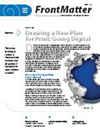Pastoralism in Changthang, Ladakh: Adaptations, Challenges, and Pathways for Sustainability
IF 1.8
4区 环境科学与生态学
Q4 ENVIRONMENTAL SCIENCES
引用次数: 0
Abstract
In the Changthang region of Ladakh, India, pastoralism serves as the cornerstone of both the local economy and the local way of life. However, recent socioeconomic shifts and environmental constraints put this economic structure, which has been expertly adapted to the difficult trans-Himalayan geography, in danger of becoming unsustainable. To explore methods for balancing development, ecology, and Indigenous culture, this review analyzes pastoralism in Changthang. The sole dependable method of food production for generations has been mobile pastoralism, supported by high-elevation rangelands. Breeds of native livestock adapted to scant vegetation and seasonal variation have been selectively bred by generations of pastoralists. Sale of wool and cashmere provides financial stability for pastoralist families, mitigating income vulnerability to climate shocks and market fluctuations that would otherwise disrupt predominantly livestock-rearing livelihoods. However, traditional transhumance cycles and collective resource management have been hampered by sedentarization, population growth, conservation constraints, and market integration. Climate change and unrestricted grazing contribute to grassland degradation. Promising programs combine conventional methods with innovations like mobile veterinary services and satellite forecasting to preserve breeds and grazing resources while increasing productivity and climate resilience. These initiatives seek to support regulated grazing practices. Comanagement practices that involve communities in conservation planning are essential. This production system and culture can be maintained through integrated strategies respecting pastoralists' stewardship.拉达克昌唐的畜牧业:适应、挑战和可持续发展之路
在印度拉达克的昌唐地区,畜牧业是当地经济和生活方式的基石。然而,最近的社会经济变化和环境制约因素使这一经济结构面临难以为继的危险,而这一经济结构已经很好地适应了横跨喜马拉雅山的艰难地理环境。为了探索平衡发展、生态和土著文化的方法,本综述对长塘的畜牧业进行了分析。在高海拔牧场的支持下,流动放牧是世世代代唯一可靠的粮食生产方式。世世代代的牧民选择性地培育出适应稀少植被和季节变化的本地牲畜品种。羊毛和羊绒的销售为牧民家庭提供了稳定的经济来源,减轻了收入易受气候冲击和市场波动影响的程度,否则,以饲养牲畜为主的生计就会遭到破坏。然而,传统的转场放牧周期和集体资源管理已受到定居化、人口增长、保护限制和市场一体化的阻碍。气候变化和无限制放牧导致草原退化。有前景的计划将传统方法与移动兽医服务和卫星预报等创新技术相结合,在提高生产力和气候适应能力的同时,保护畜种和牧草资源。这些举措旨在支持规范的放牧做法。让社区参与保护规划的共同管理做法至关重要。这种生产体系和文化可以通过尊重牧民管理权的综合战略得以维持。
本文章由计算机程序翻译,如有差异,请以英文原文为准。
求助全文
约1分钟内获得全文
求助全文
来源期刊
CiteScore
3.10
自引率
18.80%
发文量
36
审稿时长
4.5 months
期刊介绍:
MRD features three peer-reviewed sections: MountainDevelopment, which contains “Transformation Knowledge,” MountainResearch, which contains “Systems Knowledge,” and MountainAgenda, which contains “Target Knowledge.” In addition, the MountainPlatform section offers International Mountain Society members an opportunity to convey information about their mountain initiatives and priorities; and the MountainMedia section presents reviews of recent publications on mountains and mountain development.
Key research and development fields:
-Society and culture-
Policy, politics, and institutions-
Economy-
Bio- and geophysical environment-
Ecosystems and cycles-
Environmental risks-
Resource and land use-
Energy, infrastructure, and services-
Methods and theories-
Regions

 求助内容:
求助内容: 应助结果提醒方式:
应助结果提醒方式:


